2024 was an exciting time for film. From the papal thriller Conclave to the Bob Dylan biopic A Complete Unknown, a number of mid-budget movies benefitted from impressive box office hauls, as superhero blockbusters remained largely absent. The commercial success of major arthouse releases like Anora, Challengers and The Substance proved that there is a market for bold, authentic stories unafraid to challenge audiences. It was also a year of innovation, with non-traditional formats like documentary, animation, and experimental film pushing their mediums to exciting new heights. Even in an awards season with its fair share of controversies, 2024’s vibrant and varied cinematic output has resulted in one of the Oscars’ most diverse Best Picture lineups yet, with an experimental indie, two films not in the English language, a number of Black-led stories and (gasp!) a horror movie, all making the final cut.
As usual, this listicle comes fashionably late into the year. There are a number of reasons for this: yes, the holidays kept me busy, but another, more unfortunate trend last year was poor release strategies among major arthouse film distributors. I like being exhaustive. This list is only what I consider the best of the best of what came out in 2024, as I saw 88(!) new releases in total. However, a good number of these weren’t made available to me until very recently. This habit of studios making their biggest releases inaccessible to audiences outside of the coastal U.S. cities for weeks (sometimes months) at a time, isn’t just elitist—it also lets the films and filmmakers down. A movie shot entirely in first-person POV was never going to be a box office hit, but I blame Nickel Boys missing out on directing and cinematography nominations at the Oscars, and failing to make back even one tenth of its budget, on Amazon MGM Studios’ failure to sustain hype by refusing to give the film a wide release.
Still, I’ll admit, I got a little bit ahead of myself when it came to writing this time around, churning out longer blurbs for a number of my favorite titles—something I’m not sure I’ll be doing again. I honestly debated whether or not to even finish this project, seeing how we’re well into February now. I know I’m not the only one who publishes their year-end lists early in the new year, but not being able to meet the moment dampens my spirit a little bit. Still, you know what they say—the year in film isn’t over until awards season is, and baby, there are still a little under two weeks to go until the Oscars, so buckle up. Many of the films on this list are ones that won’t get recognized by the Academy (although some almost certainly will be), so make sure to prioritize those, if you’re looking for recommendations! Awards shows are a platform for films to get noticed, and many of these could use the exposure.
As usual, thanks to those who’ve been reading me over the years. I don’t have plans to monetize this newsletter anytime soon, so the moral support really does mean the world. This entry is already way too long, so I’ll stop the preamble. From gentle Sundance dramas to ball-busting action spectacles, screwball comedies to gothic romances, political thrillers to animated fables, here are my top 25 films of 2024.
25. Christmas Eve in Miller’s Point (dir. Tyler Taormina)
Following the shenanigans of a multigenerational Italian American family as they gather to celebrate Christmas in the fictitious Long Island town of its title, Tyler Taormina’s loosely plotted Christmas Eve in Miller’s Point coasts on the talents of its ensemble—which includes Michael Cera, comedian Gregg Turkington and a horde of fresh, new faces—to depict the universal experience that is holiday season chaos with bracing accuracy. It’s quirky, but never grating; from dorky teens to loud-mouthed uncles, the characters who populate this film are all variants of people you’ve likely met before—pasty skin and unfortunate misuse of urban slang included. Taormina’s stylistic flourishes, which take the form of iris shots and humorous closeups, serve to reflect both the common idiosyncrasies of an average American extended family gathering, and the kitsch of what’s arguably (and lovingly) the tackiest of all faith-based holidays. All of this results in the best kind of hangout movie: one whose formal eccentricities don’t drive, and instead compliment, its colorful cast of characters in what can only be described as a lower-stakes, yuletide approximation of Robert Altman’s Nashville (1975)—with all of the added schmaltz that this moniker implies. ★★★★☆
24. Furiosa: A Mad Max Saga (dir. George Miller)
Furiosa is not a perfect film. The fourth entry in George Miller’s Mad Max franchise feels like a prequel replete with expositional dialogue, and is partially reliant on rehashing a lot of what audiences liked about its predecessor: the epic, impassioned, gigacoaster that was 2016’s Fury Road. At the same time, it's more seamless about its exposition than other movies of its ilk, and can anyone really blame it for borrowing from arguably the greatest action film of the past decade? Even if Furiosa isn’t as fresh or as exciting as Fury Road, it's still a towering spectacle with big emotions and some of 2024’s most thrilling setpieces.
I like how callous everyone in this movie is made to feel. A woman gets her face sliced down the middle during an axe fight, but keeps on going, like it's just a minor inconvenience. Later, Furiosa watches maybe the only person she cares about get tied to a motorcycle and dragged across the desert, but it's not this big, operatic moment because there’s no time for emotional outbursts—she's gotta escape her captors and bring down Ugly Chris Hemsworth. That’s not to say that the movie is bereft of pathos. Multiple scenes, including the very poignant ending, make it very much the opposite of that. ★★★★☆
23. Monkey Man (dir. Dev Patel)
The action aficionados I follow on social media seem to be split on Monkey Man, and that’s fair, but Dev Patel’s adrenaline-charged directorial debut far exceeded my expectations as a straightforward spectacle of bone-crunching violence. In fact, it’s probably the most enthralled I’ve been by a mainstream action flick since the release of John Wick: Chapter 3 - Parabellum—one of my favorite movies of 2019. Comparing it to the Wick franchise may seem reductive, but despite anything Patel may have said leading up to its release, his movie invites these comparisons through multiple neon-lit combat sequences and other, more direct, references ("You like John Wick? I have the same gun from the movie!" a character says at one point). This is a movie in which one guy biting another guy’s nose off isn’t even one of the 3 most violent things that happen. It’s a grimy, sweat-soaked, two-hour fight, propelled by some blistering class critique and the host of influences Patel proudly wears on his blood-soaked sleeve. You’ll want to shower after watching it. ★★★★☆
22. The Brutalist (dir. Brady Corbet)
Is there a better description of a cube than that of its construction?
This is what visionary architect László Toth tells the wealthy industrialist Harrison Lee Van Buren in response to the question of why he became an architect. Among other things, The Brutalist is about interpretation, and how spectators project their own ideas onto existing works. We witness this many times over the course of the film: in Audrey’s bias against László’s designs, during the dinner scene where he and Erzébet argue with Zsófia about their faith and her decision to make aliyah, at the Biennale where Zsófia offers an interpretation of his art, etc. The Brutalist is also conscious of the ways in which works often get weaponized by those with extreme and intolerant ideologies, regardless of their creator’s intent. László tells Harrison he wants to make art that speaks for itself and withstands the erosion of time. But an artist cannot control what happens to their art once it’s released to the world. To make art that lasts is to subject it to infinite possibilities, not all of which are good.
The film is ambiguous about some things and unsubtle about others. Writer-director Brady Corbet and co-writer Mona Fastvold want us to consider their artistic, historical and philosophical influences in search of answers. The film’s language makes this abundantly clear: it’s titled after a style of postwar architecture whose form follows function, and whose modern approach contrasts the classical art favored by fascist leaders of that era. It’s set in a time of political and social upheaval, and constantly references real-life historical events—such as the Nazis’ shutdown of the Bauhaus in 1933, the Truman Directive of 1945 and the establishment of Israel in 1948—through the characters’ dialogue. Corbet and Fastvoldt want us to examine this history with hindsight: how do the characters’ experiences inform their principles, and what ironies may they not be aware of? The quote that the film ends with (“It is the destination, not the journey”) is a testimonial to both immigrants who sacrifice so much in search of brighter futures, and artists whose creative frustrations result in beauty. László's WASP patron would probably agree with the sentiment, for entirely different (hollow) reasons. I’m still working out what it means to Zsófia. ★★★★☆
21. Love Lies Bleeding (dir. Rose Glass)
It should come as no surprise that this pulpy, heavily stylized neo-noir about lesbians on the lam made my list of favorite films from the past year—especially when Rose Glass’ previous feature, the more divisive Saint Maud, appeared in my “Best of 2021” listicle. Much like that one, Love Lies Bleeding is a taut thriller with plenty of dramatic and sexual tension, two committed lead performances, and a vintage, textured look (both were apparently shot on digital, but adjusted in post-production to look like they’d been shot on film). Kristen Stewart is as great as you’d expect in the role of a Lou, dirtbag gym manager with high cortisol levels, but it’s relative newcomer Katy O’Brien who really stuns as Jackie, an aspiring bodybuilder with a bad habit of developing strong emotional attachments. Shit hits the fan when they fall for each other and Jackie learns of Lou’s criminal past. If you’re into cowboy hats, girls with mullets, goons with mullets, muscle shirts, and/or watching skulls get crushed, you’re pretty much guaranteed to like Love Lies Bleeding—a potpourri of American iconography punctuated by one of 2024’s greatest soundtracks. ★★★★☆
20. The Remarkable Life of Ibelin (dir. Benjamin Ree)
2024 was a fantastic year for documentaries, as you can probably tell from this list, which includes several. The Remarkable Life of Ibelin accomplishes some impressive feats—among them, being a good videogame movie, making World of Warcraft’s dated graphics pleasant to look at, and bringing me to tears. Divided in two parts, Ibelin tells the story of Mats Steen, who died at the young age of 25 after living his entire life with muscular dystrophy. The first part of Mats’ story—his family and upbringing, his love for gaming, and his struggle with physical mobility—is told by his parents, Robert and Trude. We learn how their witty, precocious child became more and more withdrawn as he aged and his condition accelerated to the point of leaving him almost entirely immobile. His final years were largely spent in his bedroom, on his computer.
Following Mats’ death, Robert and Trude are surprised to discover a blog Mats had spent years writing, along with a note he’d left them containing its password. After announcing their son’s death on the platform, the Steens receive hundreds of condolence emails from friends of his that they had never heard of—all of them WoW players, who knew him as Lord Ibelin Redmoore, private investigator from the Dwarven District of Stormwind. Thereafter, Mats’ life is given a new dimension in-game, with insights from these friends (including a few long-distance lovers), detailing the different facets to his personality in a heartrending story that’ll restore your faith in the internet’s ability to not be horrible. ★★★★☆
19. Nosferatu (dir. Robert Eggers)
Although I’d been anticipating the release of Robert Eggers’ Nosferatu for years, I went into this movie with certain reservations because I tend to feel emotionally distanced by his work despite always admiring its craft. While it’s less tidy than The Lighthouse (2019), which remains my favorite Eggers project to date, I found myself wholly enthralled with his latest offering, an elegant, tortured tragedy that borrows elements of previous Stoker adaptations while still being unique enough to stand on its own.
Reports of this being a feminist take on Dracula were, of course, greatly exaggerated. In making the Hutter damsel’s sexual and emotional repression the focal point of his story, Eggers extends sympathy towards women of previous eras, but by portraying her sexuality as abject, the film also seems fearful of female desire. The character also falls prey to her tormentor in the end—a punishing fate she does not encounter in Francis Ford Coppola or F.W. Murnau’s adaptations. But this isn’t necessarily a bug: I wouldn’t expect a filmmaker like Eggers, with his penchant for period accuracy and feel-bad endings, to end this haunting tale any other way. ★★★★☆
18. A Real Pain (dir. Jesse Eisenberg)
I have a confession to make: I hated Jesse Eisenberg before this movie. I found the neurotic schtick he does both on-screen and in interviews to be incredibly irritating, and it didn’t help that he had a habit of playing insufferable assholes all the time. As for Kieran Culkin, he played my least favorite character on Succession, a show about—and I say this affectionately—some of the most heinous people ever written for television, and his talk show appearances never gave me the impression that he was all that different in real life. It turns out, all these boys needed to do to win me over this whole time was to star in a film written and directed by Eisenberg himself—one that plays on their typical strengths to deliver something far more nuanced and rewarding than what I was used to seeing from them.
Eisenberg is wonderful in this film about mismatched Jewish-American cousins who embark on a heritage tour around Poland to honor their late grandmother, and his script is equal parts witty and poignant. On-screen however, it’s Kulkin who steals the show as Benji, the charming but maladjusted foil to Eisenberg’s awkward and uptight David. He certainly brings his own tics to the character (as he did with Roman Roy on Succession), but to say he’s merely playing himself—an argument I’ve heard a few times now—is to be dishonest about the skill that’s required to make a character like his come across as authentic and natural as he does on camera. It’s a towering performance, and if he ends up taking the Oscar, as awards pundits are predicting, it’ll be a well-deserved win. ★★★★☆
17. Janet Planet (dir. Annie Baker)
For many, the greatest compliment you could give Janet Planet—which chronicles the summer spent between a precocious 11-year-old girl named Lacey and her single mother, Janet, in western Massachusetts—is that it’s reminiscent of Aftersun (2022), a movie I was mixed on. Aftersun, about a woman’s recollection of childhood memories spent vacationing with her dad, was very effective to me as a tone poem (I cried both times I saw it), but its portrayal of the father’s mental illness was unsubtle to a fault. Lacking subtlety isn’t always a flaw (as I’ll discuss later), but in a film so restrained, moments like Paul Mescal spitting at his reflection in a mirror just felt didactic to me. Rather than spelling things out for us with dramatic visual cues, Janet Planet conveys the inner workings of its titular character much more seamlessly through the minutiae of Julianne Nicholson’s gentle, layered performance (one of the year’s very best, I should say). There’s a brilliant moment in which Janet attempts to explain to Lacey her relationships with the men who wander in and out of their lives. There’s only so much she can put into words, but we get the full picture through the inflections in her voice as she delivers the simplest of dialogues. While the film’s hushed tone and measured pacing run the risk of emotionally distancing some viewers, the synchronic wit and melancholy of Janet Planet are sure to reward those who settle into its wavelength. ★★★★☆
16. Problemista (dir. Julio Torres)
Much like Saturday Night Live alum Julio Torres, my mind likes to dream up parabolic scenarios in moments of deep frustration. Sometimes, after enduring a series of misfortunes, I imagine myself attached to a rapidly moving vehicle, flailing about with Looney Tunes physics as I crash into buildings, cars and ice cream trucks, never dying but looking rougher with each hit as my eyes spiral and my mouth zig-zags into a busted smile. Other times, I’m a jetplane running low on fuel—flying steadily, then falling, regaining control and losing it again (and again, and again)—before taking a nosedive and dropping straight into the open ocean.
Adopting a similar live-action cartoon logic, Problemista illustrates its protagonist’s financial, occupational and emotional frustrations with incredible accuracy, through a series of hilarious and inventive fantasy sequences (see above: Larry Owens as the human embodiment of Craigslist). This makes the film relatable while telling a story that’s anything but broad: that of an artist and aspiring toymaker from El Salvador, who struggles to find a stable employment in New York City before his work visa runs out. Many socially-focused dramas from recent years have centered the bureaucratic processes our government puts in place under the guise of order and fair division, in order to impede progress. Problemista’s surrealism makes this critique all the more digestible without sanitizing the hardships immigrants face in our so-called “first world,” thus instilling in us an appropriate amount of fury and empathy for Alejandro. Torres is a triple threat (he writes, directs and stars here), but you can also expect fantastic supporting turns from Tilda Swinton and RZA in this star-studded comedy. ★★★★☆
15. Flow (dir. Gints Zilbalodis)
I had heard plenty about Gints Zilbalodis, the young Latvian filmmaker who wrote, directed, produced, edited, and scored his very first animated feature film, Away (2019), several years ago—but I never got around to watching it. As a result, I was not prepared for how breathtaking his sophomore effort, Flow, ended up being. Rendered using the free and open-source software Blender and containing no dialogue, its financial and critical success has been wonderful to witness. I remember watching it on a Monday afternoon, the day after it won Best Animated Feature at the Golden Globes, and being surprised by how crowded the theater was (it was a holiday, to be fair), with people of all ages there to see the swimming cat movie. That the large group of children seated in front of me remained quiet and well-behaved throughout the screening may have been the biggest shock.
Taking place in an unspecified land where humans have either evacuated or gone extinct, Flow tells the story of a cat that finds itself stranded on a boat with other animals after a giant flood submerges the forest they live in. It’s a simple story, but its stakes are anything but small, and had adults in the theater (myself included), gasping, chuckling and shedding tears. I truly recommend this affecting, gorgeously rendered fable about collaboration that made me feel slightly better about our species’ impending doom. ★★★★☆
14. A Different Man (dir. Aaron Schimberg)
A Different Man isn’t just one of the funniest films of 2024—the pitch-black comedy from writer/director Aaron Schimberg is also one of the sharpest social satires I’ve seen in recent years. The film stars Sebastian Stan (who is terrific, but more on him later) in the role of Edward, an actor with a facial deformity who makes a living by scoring small gigs in things like commercials and office training videos. After meeting and falling for aspiring playwright Ingrid (a deliciously cryptic Renate Reinsve), Edward decides to participate in the trial for a radical, new medical procedure that ends up curing his disfigurement. However, he soon comes to regret this decision after losing out on a major role to another actor with the same condition as him (Adam Pearson, hilarious and charismatic). The result is a series of increasingly caustic twists and turns in this tale of obsession and ego that forces us to question our principles, and whether there even are any when it comes to making art. Others have jokingly called this “The Substance for men,” but this is not The Substance. It’s better. ★★★★☆
13. Anora (dir. Sean Baker)
I knew from the moment I heard the basic premise of Anora (a Brooklyn sex worker impulsively marries the son of a Russian oligarch; chaos ensues), that it wouldn’t be a romance flick. The newest project from Sean Baker, a filmmaker whose riotous yet frequently tragic work deals with people at the margins of America’s periphery, would be a romp, and it would feature instances of affection between its leads, played by Mikey Madison and Mark Eydelshteyn. But the many, many (and trust me, there are many) headlines calling this movie some variation of a “modern Cinderella story,” and the trailer’s framing of this tale as one of lovers on the run, had to be a thinly veiled ruse—even if they did convey the movie’s raunchy, chaotic energy (“Makes Pretty Woman look like a Disney movie!” reads one of the teaser’s pullquotes). There was just no way that this film—from this director—would be so uncritical of the power imbalance between its titular character and her wealthy patron, even in a production so lavish compared to the scrappy, DIY quality of his early work.
As expected, Baker did not let me down with Anora, a rip-roaring, wild goose chase with an emotional gut punch of an ending. Madison is great in her first lead role, her Annie feeling fully fleshed and well-at-home in the ruthless atmosphere of NYC’s club scene. Eydelshteyn is very funny (and almost too good) as Vanya, a 21 year-old man-child whose handsome, elvish features simply cannot hide how bad he is at sex. The underrated Karren Karagulian (a frequent collaborator of Baker’s), is hilarious as Toros, the Zakharov family’s handler who finds himself in over his head with our uncompromising protagonist. Rounding out the fine ensemble are Vache Tovmasyan and Yura Borisov as Toros’ henchmen, Garnik and Igor, with the latter unexpectedly delivering the film’s emotional crux. ★★★★☆
12. The Apprentice (dir. Ali Abbasi)
Making a movie about Donald Trump was always going to be an uphill battle for director Ali Abbasi and writer Gabriel Sherman. Even putting aside the difficulty they had getting The Apprentice bought and distributed in the United States amid attempts by the president’s legal team to block its release, America’s media landscape has long been saturated with caricatures of Trump. To release it in an election year with so much baggage was also a very big risk. Trump’s supporters were never going to watch a movie that was so critical of him, and many liberals weren’t about to spend two hours with a figure they found so repulsive. Finally, there was the casting, which, on paper, makes absolutely no sense (what do you mean, Marvel heartthrob Sebastian Stan plays the Annoying Orange?). In short, The Apprentice seemed like it was doomed to fail from its inception. Imagine my surprise when it wound up being not just good, but great.
Chronicling Trump’s early career as a real estate businessman in New York City during the 1970s and ‘80s, The Apprentice subverts the tropes of brand origin stories like The Founder (2016) and House of Gucci (2023), by refusing to be about an average man betrayed by his own greed and ambition. Instead, Sherman and Abbasi tell a cautionary tale about mentorship and tyranny in a shark-eat-shark world. Sure, our protagonist works the unglamorous job of collecting rent for his real-estate mogul father at the start of the film, but when cutthroat lawyer Roy Cohn (Jeremy Strong) offers to help him, it’s to win a federal lawsuit for housing discrimination against Black tenants. Trump was always rotten, at his core—even when he lacked the means to commit large-scale acts of destruction. Stan and Strong are both revelatory, with the former turning in a surprisingly nuanced performance, his inflections and mannerisms gradually transforming him into the imposing figure we know Trump as today. To watch him pop amphetamines like jelly beans and have the excess fat liposuctioned from his body, is to witness the most grotesque of all political cartoons come to life. ★★★★☆
11. Àma Gloria (dir. Marie Amachoukeli)
Although its tone and message are quite different, this tender and bittersweet coming-of-age story from French director Marie Amachoukeli reminded me a lot of Claire Denis’ Chocolat (1988)—one of my all-time favorite movies. In both, the filmmaker’s treatment of race and their decision to tell the story from a child’s perspective results in a nuanced portrait of the fraught relationships between white children and their Black caretakers—a common dynamic in Europe due to its violent colonial history with Africa, the economic effects of which have led many Africans to migrate from the continent in search of better financial prospects in the past several decades.
In Àma Gloria, four year-old Cléo is too young to develop the hindsight that the protagonist in Chocolat eventually does, and the film does not take place in French colonial Africa but in present-day France (and later Cape Verde). When her beloved nanny, Gloria, receives tragic news requiring her to return home to her native country, Gloria arranges with Cléo’s father to send the child over for the summer, before they part ways for good. The idea is to ease what will no doubt be a difficult adjustment for them both, but it proves thorny when Cléo meets Gloria’s family and discovers that formative yet painful lesson in every child’s life, perhaps best summarized as the old saying goes: you are not the center of the universe. ★★★★½
10. Daughters (dir. Angela Patton, Natalie Rae)
Early last year, I watched Sing Sing at a festival, a month before its limited release. The prison drama, based on the real-life Rehabilitation Through the Arts program at New York’s Sing Sing Correctional Facility, was receiving great word of mouth and garnering early Oscar buzz all the way back in May. I found it to be trite, feel-good nonsense that sanitized its subject matter to an irresponsible degree. I could get behind the filmmakers’ decision to focus on the characters’ healing rather than their trauma, avoiding the pitfalls of other, more exploitative prison dramas. What I couldn’t get behind was an apolitical film about prison that is mostly uncritical of both its titular facility and the U.S. carceral system at large (the worst thing we see happen is the protagonist being denied parole, only to get it approved later)—and thus, fails to convey the need for rehabilitative programs like RTA.
I was reminded of this while watching Daughters, a gorgeously shot, often heartbreaking, but ultimately rousing documentary by Angela Patton and Natalie Rae. The movie centers on a similar initiative: a father-daughter dance program for girls with incarcerated dads, which Patton herself founded in Richmond, VA. It follows four young girls—Aubrey, 5; Santana, 10; Ja’Ana, 11; and Raziah, 15—along with their fathers, Keith, Mark, Frank, and Alonzo, as they prepare for this dance over the course of several weeks leading up to the big day. Because the children’s circumstances are all so different, we witness a wide range of emotions. Aubrey, who is the youngest and whose father was incarcerated most recently, is over the moon at the chance to see him again. However, others seem less enthusiastic, including Santana, who harbors a deep resentment toward her father, and Ja’Ana, who has never even met hers.
We are also shown the families’ difficulties in navigating a system that actively seeks to isolate these men: visits either aren’t allowed or are monetized (as are calls), and prisoners are frequently relocated to facilities too distant for their loved ones to make regular trips. A time jump shows us the effects that this has on Aubrey and Keith’s relationship, which changes as the years pass. But through the program’s empowerment of these girls and the mens’ avowal to change for the better, we also get some happy endings—such as Mark’s eventual release and the mending of his relationship with Santana. This makes Daughters the more effective prison drama of 2024—one that clearly demands reform by outlining the positive social outcomes of rehabilitative (as opposed to punitive) justice. ★★★★½
9. Conclave (dir. Edward Berger)
Based on Robert Harris’ airport novel of the same name, Edward Berger’s elegant and absorbing Conclave is Dad Cinema™ at its finest. Its premise is rather straightforward: a cardinal experiencing a crisis of faith is tasked with managing the ancient ritual of electing a new pope. Rather quickly, however, Conclave reveals itself to be not so much a film about the Vatican as it is a parable about the failure of traditionalism to uphold the purported functions of the archaic institutions which preside over us, resulting in corruption.
It's no coincidence that much of the language used in relation to the titles, policies, and procedures of the conclave closely mirrors that of the U.S. electoral system—I’d even argue that the film almost makes this too obvious at times. Most of the criticisms I’m seeing from people who expected a staggering exposé of the Catholic church’s many scandals are missing the forest for the trees: the film is meant to be broad. As a piece that aims to explore institutional theory in an accessible manner, it makes sense for Conclave to focus on the oldest institution in the world to illustrate its point about how resisting change by rigidly sticking to outdated traditions leads to decline. And yet, the movie harbors a refreshing optimism about the future that left me charmed, unrealistic as its ending may be in 2024. ★★★★½ READ MORE
8. Dune: Part Two (dir. Denis Villeneuve)
It’s hard to describe the virtues of Dune: Part Two without falling into hyperbole, so I’ll start with a disclaimer: lore-heavy action and sci-fi pictures aren’t usually my cup of tea. I’ve always preferred the simplicity of films like Ridley Scott’s Alien (1979) and Kathryn Bigelow’s Point Break (1991) to the dense plotting of Denis Villeneuve’s Blade Runner 2049 (2017)—and while I greatly admired the crafts of his previous Dune (which landed 24th place on my 2021 list), I can’t say it provoked much of an emotional response from me. And yet, the sequel took my breath away with its tremendous scale and some of the most creative character, costume, production, creature and gadget designs of any science fiction film in recent memory. Certain images—like Paul riding the sandworm, and the Harkonnens taking flight against Arrakis’ orange sky—will forever stay with me as emblematic moments in large-scale speculative fiction. If you, like me, harbor a chronic disinterest in sci-fi technobabble, I can promise you that Dune: Part Two is much more character-driven (and chuckle inducing!) than its dense, impenetrable predecessor. ★★★★½
7. Challengers (dir. Luca Guadagnino)
I’m very precious about Challengers, the hilarious and unpretentious sports dramedy from arthouse director Luca Guadagnino. Film Twitter hyperbole made it sound like the gayest thing ever, and while there’s obviously some sexual tension between all members of its romantic triangle (played by Zendaya, Mike Faist and Josh O’Connor), both men’s romantic and sexual attachments to the same woman are not only sincere, but also integral to their dynamic. To erase Zendaya from this narrative and view the protagonists as latent homosexuals is to ignore how Guadagnino blurs the boundaries of all intense relationships (be they romantic, platonic, friendly, adversarial, emotional or sexual) into one all-encompassing abstraction.
I’ve also seen this movie described as raw and sensual, but I think Challengers is sexy the same way shampoo commercials are “sexy”: glossy and somewhat stilted. Like the men’s chest-pumping displays of machismo, the film itself is an exercise in performance and artifice. More than anything, Challengers is about commitment. Whenever Trent Reznor and Atticus Ross’ pulsating electronic score plays over an emotionally charged conversation to remind us that both love and tennis are like a game—but also, so much more than just a game!—we are also reminded of the fact that we are watching a movie. And what a stylish, exhilarating and enjoyable one it is. ★★★★½
6. La Chimera (dir. Alice Rohrwacher)
“If Italians were more like the Etruscans, there wouldn't be so much machismo,” says a character in La Chimera, Alice Rohrwacher’s lush fantasy about a grave robber (Josh O’Connor—again!) grieving the loss of a lover in 1980s Tuscany. We often view ancient cultures as primitive, but these were highly developed civilizations with intricate rituals and ideologies. The same holds true for faith; some see the afterlife as an outdated concept tied to unproven myths, but these myths are also an intrinsic facet in many people’s lives, in part because they help to rationalize death. Like treasures that oxidize when exhumed from a burial, there are just so many things we can’t bear witness to in this realm. The idea of viewing death not as an end, but as the next phase in our existence and the reward for a life well lived, is comforting.
La Chimera sat at the peak of this list for the better part of a year, and the fact that it hasn’t left my top 10 since I first saw it back in May, just speaks to its power. It’s not a film that begs to be understood, but rather, one that aims to conjure deep emotions from us. Perhaps that’s why I find it so difficult to write about. What I can say for sure, is that it made me less uneasy about the end that inevitably awaits us all. ★★★★½
5. The Seed of the Sacred Fig (dir. Mohammad Rasoulof)
I’m confused by the many reviews of The Seed of a Sacred Fig that refer to the film’s first half as a “domestic drama” and its second half as a “thriller.” The film evokes pure dread from the very beginning, when it introduces us to an Iranian family affected by the nationwide protests that followed the death of Mahsa Amini in 2022. When the family’s patriarch, an honest lawyer named Iman, gets appointed as an investigating judge in Tehran’s Revolutionary Court, it’s immediately made clear that, despite offering him a higher salary, this promotion does not guarantee his family’s safety or stability; in fact, any failure to comply with the government’s orders (including that he sign protesters’ death warrants without assessing evidence), would put them all in peril. The country’s politics then become increasingly personal for the family when Iman’s daughters get caught up in the social justice movement and his government-issued handgun goes missing, increasing the film’s suspense and Iman’s paranoia.
Following the announcement of The Seed of the Sacred Fig’s Cannes premiere last May, writer-director Mohammad Rasoulof and several of his crew members were persecuted by Iranian authorities and forced into exile. I mention this to contextualize the degree of authoritarianism in Rasoulof’s home country, and how this reflects the urgency for voices like his—not because the film doesn’t stand on its own artistic merits. The movie offers an incisive deconstruction of radicalism and complicity under totalitarian rule that exposes the machismo prevalent in (but certainly not limited to) Iranian society as the result of political oppression and institutionalized religious fundamentalism—not of Islam itself, as western media has tricked so many people into believing over the years. And Although Rasoulof’s political critique is explicit, the family's simultaneous role as both an allegory for and a microcosm of the state at-large makes the film all the more affecting. ★★★★½
4. Red Rooms (dir. Pascal Plante)
In her seminal “Powers of Horror” essay, Julia Kristeva defined abjection as a process by which we form our identities; we are repulsed by gore because of the dilemma of being alive, then not alive, and rejecting what we find repugnant allows us to get a better sense of who we are. This could be what drives some people to deliberately seek out violent media at a time when subreddits dedicated to the dissemination of cartel videos exist only a couple clicks away from our home screens. Enter Red Rooms, a white-knuckle thriller from Québécois director Pascal Plante that offers an incisive look at our dopamine-seeking media consumption habits in the digital age.
Red Rooms follows Kelly-Anne, a fashion model and secret security hacker who develops an unhealthy obsession with the highly publicized trial of an alleged serial killer, leading her to search for evidence that would result in his conviction. Played to icy perfection by Juliette Gariépy, Kelly-Anne is a vexing character whose motives are never explicitly revealed to us. As we witness her repeated moral transgressions however, it becomes clear that she operates not from a place of virtue or malice, but in pursuit of sensual stimulation. She’s a manifestation of the scopophilic need to experience sensitivity through mediatic replications of the real thing—a cautionary tale of what happens when we distance ourselves so much from what’s real, that we find ourselves with nothing. ★★★★½
3. No Other Land (dir. Rachel Szor, Hamdan Ballal, Yuval Abraham, Basel Adra)
In light of the genocide that has claimed more than 45,000 Palestinian lives over the course of the last 15 months, you’ll find no shortage of articles and blurbs calling No Other Land the most “essential” and “powerful” film of the year. And make no mistake—it certainly is those things, and I strongly believe that everyone who is able to watch it should. However, I’ve witnessed frustratingly little discussion of the film’s artistic merits. It’s an infuriating watch, yet also deeply tender at times, featuring conversations so sharply observed that you'd almost forget you're watching a documentary—if not for our heightened awareness of this conflict in view of recent events, which the film’s frequently employed raw footage reminds us of.
Centering the fraught but affectionate friendship between its two subjects—Palestinian land activist Basel Adra and Israeli journalist Yuval Abraham—No Other Land offers an incisive rumination on filmmaking and the intersection of art and activism, problematizing the cliché that art alone can heal the world. Basel lives in Masafer Yatta, a desert region composed of 20 Palestinian villages on the southern West Bank, where residents have faced threats of eviction and the demolition of their homes since 1981. In 2022, Israel’s supreme court ordered the expulsion of 1,200 Palestinians from eight of these villages, including Basel’s, in order to flatten the area into a training ground for its military forces.
“When I was a boy…people around me started to film,” Basel says of the community he grew up in. “I started filming when we started to end.”
This sentiment regarding the importance of documenting history as it happens is present in discussions Basel has with Yuval and others about making the film they’re in. In the beginning, he seems idealistic about the prospect of making something with the potential to reach audiences around the globe: “I believe we can stop the expulsion if we are active and we document on the ground. It will force the United States to pressure Israel,” he says, confidently. A year later, both men appear more uncertain, with Basel’s circumstances now worse than before. “They don’t give us permits,” he responds to Yuval’s suggestion that he visit him in Israel sometime in the future, when everything has blown over.
“If there’s stability and a democratic state, you’ll get all the permits you want,” his friend tells him.
“If,” Basel replies.
“I think people need to figure out how to make change,” says Yuval. “Somebody watches something, they’re touched…and then?”
“Exactly.” ★★★★★
2. Nickel Boys (dir. RaMell Ross)
For RaMell Ross, the subjective is poetic. The filmmaker has spoken about the inherent poetry in experiencing the world through the eyes of others, shifting rhythms to adopt distinct points of view. It’s why we have movies: more than the cliché about trading lives with characters whose experiences differ from ours, to watch a film is to enter an oneiric dimension from which we come away with new perspectives. The form of Ross’ first feature, an experimental documentary titled Hail County This Morning, This Evening (2018), served to conscientize viewers about subjectivity and its effect on our perceptions of “truth.” Shot almost entirely in first-person POV, his newest project, the historical fiction film Nickel Boys, is also an exercise in subjectivity, offering a glimpse into the lives of two Black teens in 1960s Florida—both prisoners of an abusive correctional facility inspired by the real-life Dozier School for Boys.
Nickel Boys is a staggering effort: a harrowing examination of grief that foregrounds mood over narrative, reflecting on America’s racist underpinnings, the iron-willed persistence of Black love, and the importance of bearing in mind the past. There are certainly comparisons to be made between the self-inscribed “Black poetics” of Ross’ work and other Black expressionist films from recent years: Burning Cane (2019), The Last Black Man in San Francisco (2019) and the works of Khalik Allah, for example. Still, the form of Nickel Boys—a collage of mnemonic fragmentation and real-life historical documents that alternates between timelines and perspectives—makes it unlike any other film I’ve seen. Even in the smallest of details—like the sound of a drinking glass hitting hardwood, or the swoop of a finger wiping buttercream from a knife—Ross captures life-affirming beauty.
I’m sure Nickel Boys will have its detractors. Where the tone poems of other celebrated filmmakers, such as Terrence Malick and Apichatpong Weerasethakul, invoke a hushed restraint, Ross is more visceral, with some of his images appearing unsubtle (see above). But this feels deliberate in a film that concerns itself with the ideological tensions of 1960s America, and the intolerance that’s rooted in our country’s very foundation—an intolerance that remains unsubtle to this day. ★★★★★
1. I’m Still Here (dir. Walter Salles)
When critics look back at the best films of any given year, we’ll often consider individual moments in them that moved us. I’ve personally spent a lot of time these past few months thinking about the part in No Other Land where Basel and Yuval sit underneath the night sky, smoking hookah and discussing their futures. I’ve also thought about the Warsaw Uprising sequence in A Real Pain, where Benji poses among the memorial statues like a soldier in battle, his excitement hilariously infecting the other tourists. But if you were to ask me about my absolute favorite movie moment of 2024, I’d point to several instances from I’m Still Here, unable to pick just one—a rare feat for a film to accomplish.
We can start with the police’s invasion of the Paiva household—a masterclass in escalating tension wherein Eunice, Rubens and their intruders each feign stability in front of the children for different reasons. Then there’s the shower scene, where Nalu privately witnesses a rare display of vulnerability from her otherwise stoic mother, who, try as she might, cannot rinse the trauma of her captivity. There’s the instance at the ice cream parlor, where Eunice, secretly widowed with five kids to raise, quietly observes the families around them with a gaze so compellingly delivered by actress Fernanda Torres that it eschews the need for dialogue. And then, of course, there’s the ending, where we witness an elderly Eunice react to the image of her late husband on the family’s television screen in a brief moment of lucidity—another heart-wrenching moment in this tragic but ultimately life-affirming film.
It’s hard to articulate why this decades-spanning melodrama about real-life Brazilian activist Eunice Paiva, whose husband was murdered by authorities during the country’s 21-year military dictatorship, resonated so deeply with me. Sure, there’s something to be said about the film’s political backdrop, and how the military junta’s violent suppression tactics (police brutality, false imprisonment, forced disappearances, targeted assassinations, etc.), felt eerily familiar to me as a second-generation Venezuelan, despite any (supposed) ideological differences between that regime and Nicolás Maduro’s. But I’m Still Here does so much more than just form obvious Parallels To Our Times, and thankfully, writer/director Walter Salles does not indulge in gratuitous displays of the physical violence I’ve mentioned (although the implication of said violence is harrowing enough).
Unlike too many historical dramas, I’m Still Here’s sentimental core does not solely rely on the inherent tragedy of the events it depicts, but from its character study of Eunice, and the keen observations it makes about each and every one of the people surrounding her, however short their screentime may be. Its pathos is found in the dramatic weight of a child not knowing that they are bidding their father one last farewell. It’s in the nostalgia conjured by the word “soufflé.” It’s in the codes spoken by adults, in the childrens’ laughter and in the simple act of defiance that is Eunice’s smile. I’m Still Here is a movie that breathes life—one that, over the course of two and a half hours, makes sure you come away knowing exactly who its protagonist is. This makes it, quite easily, 2024’s greatest film in my eyes. ★★★★★






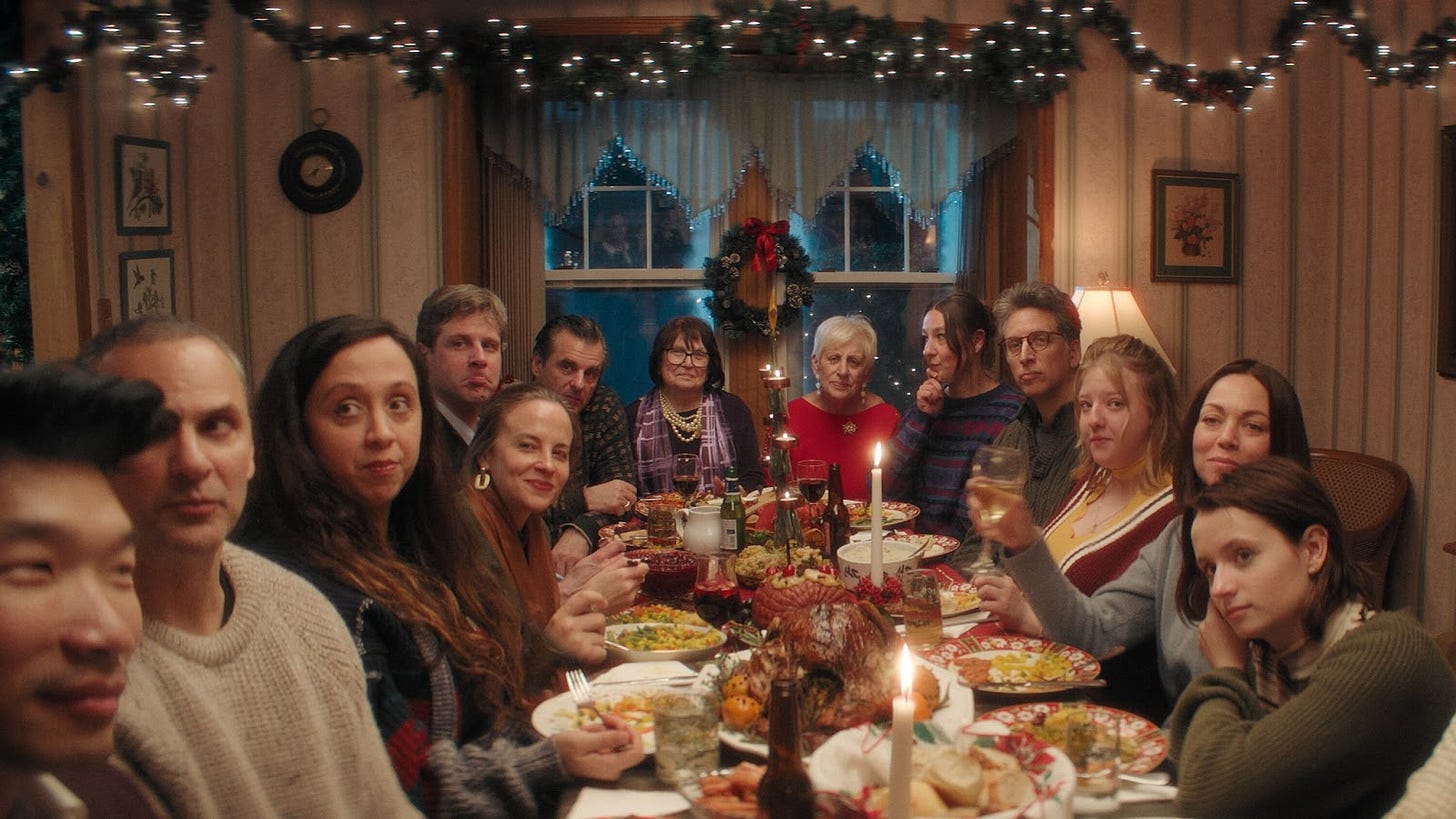
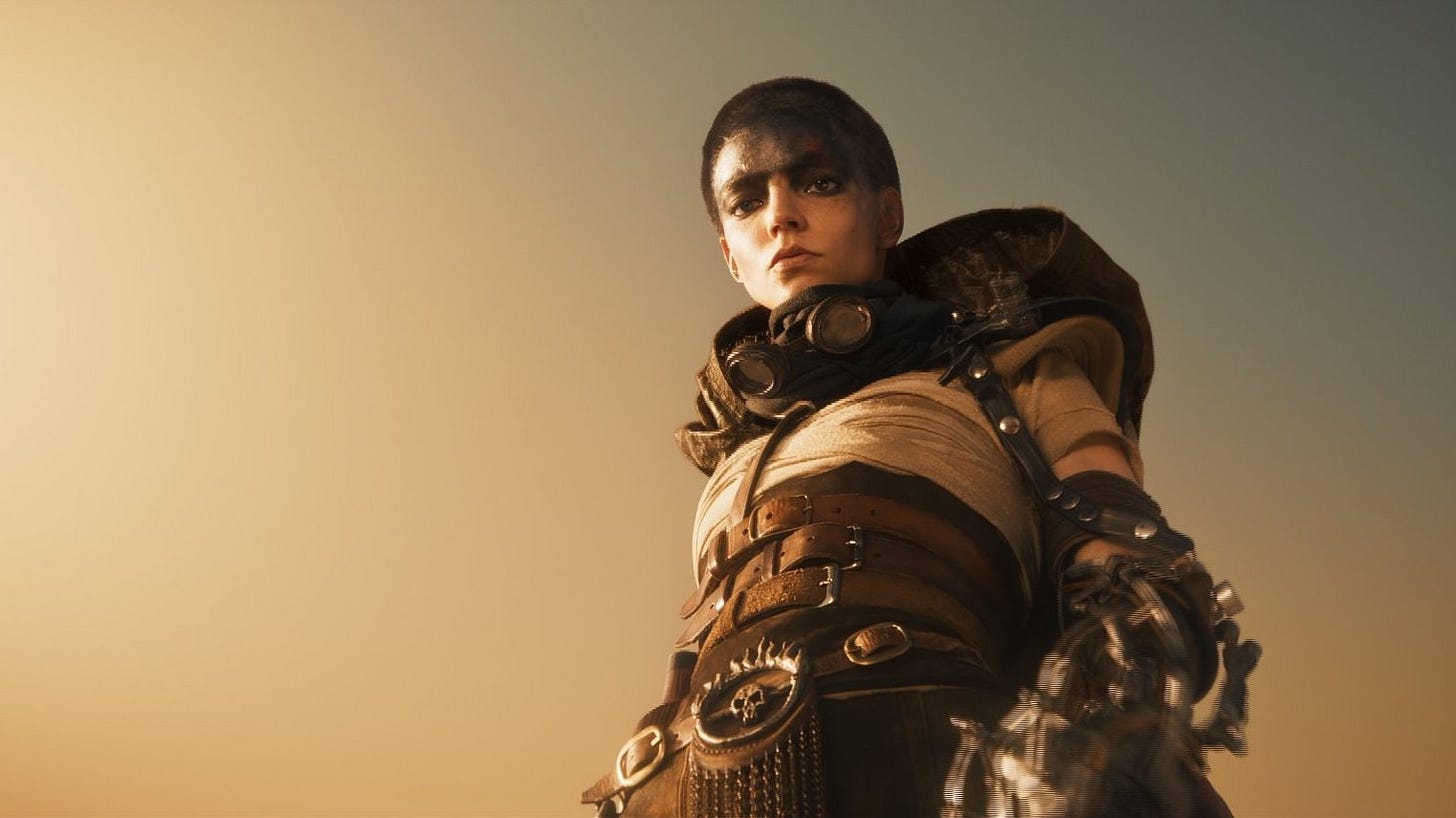
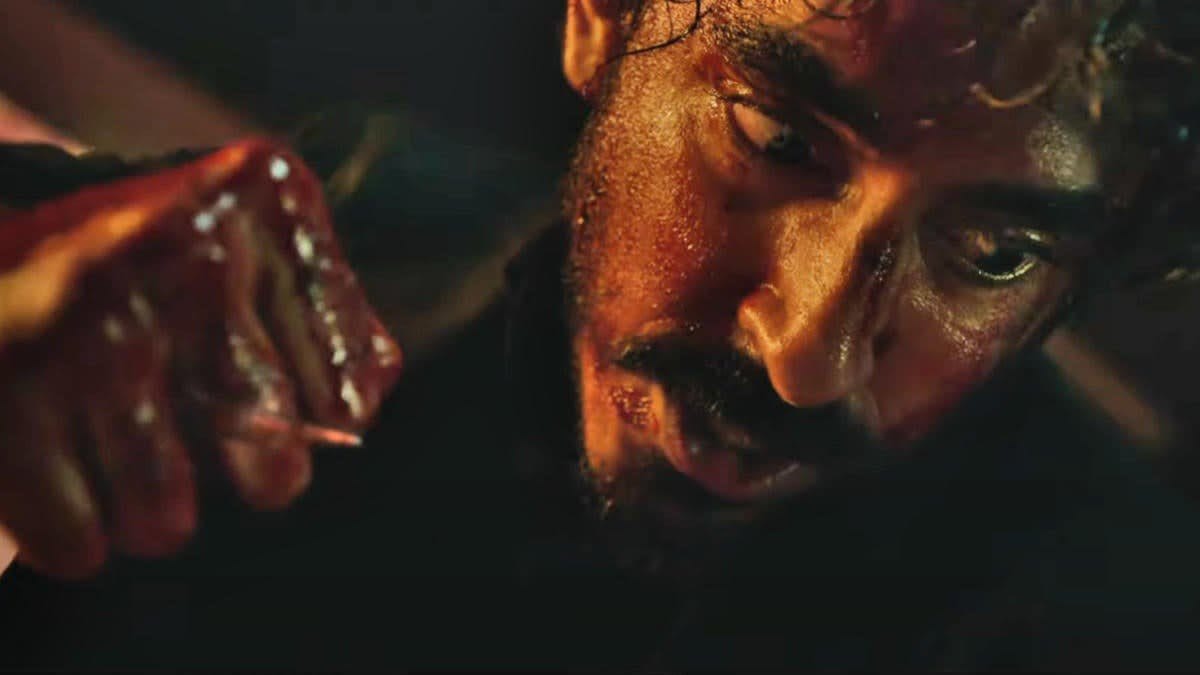
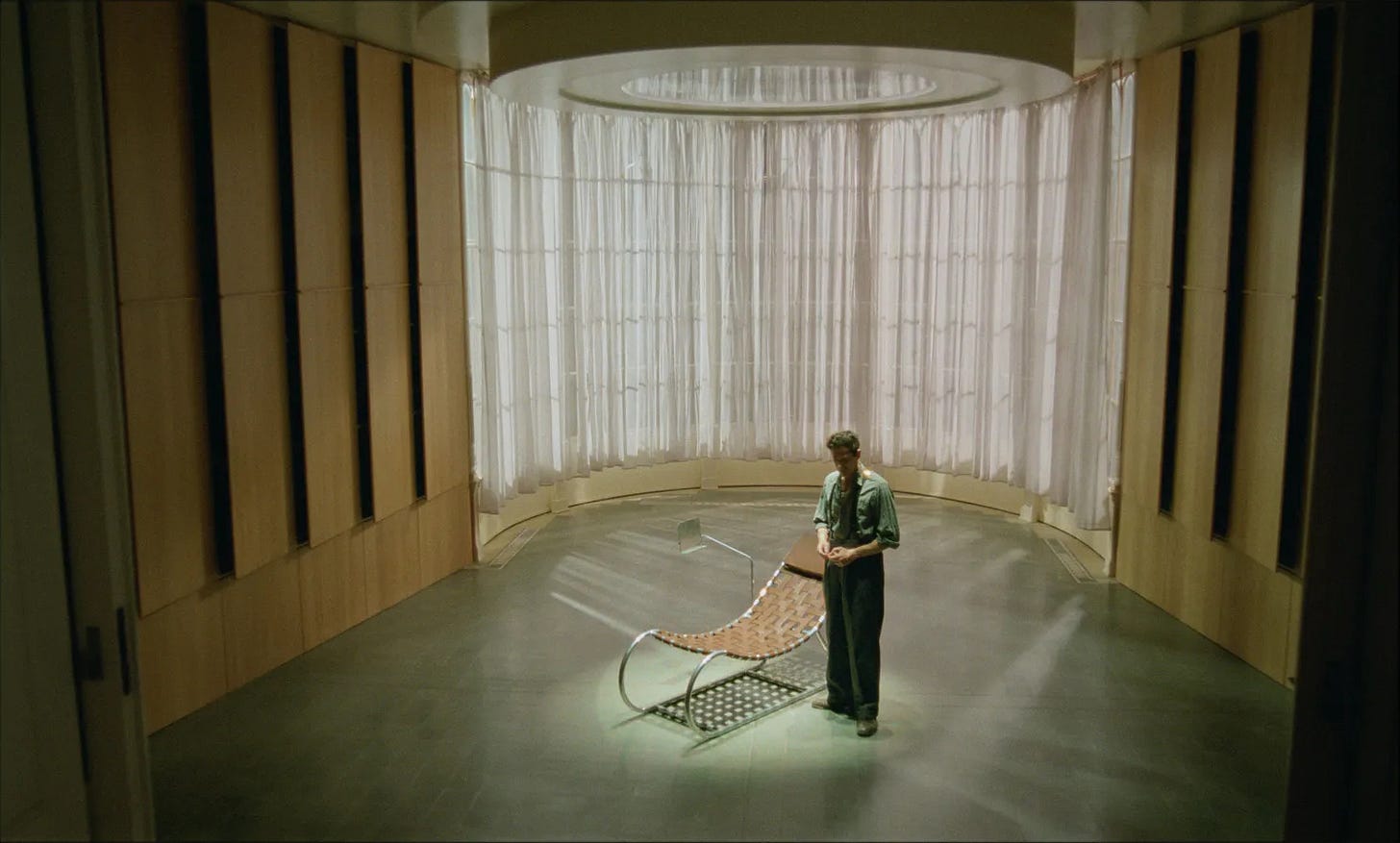

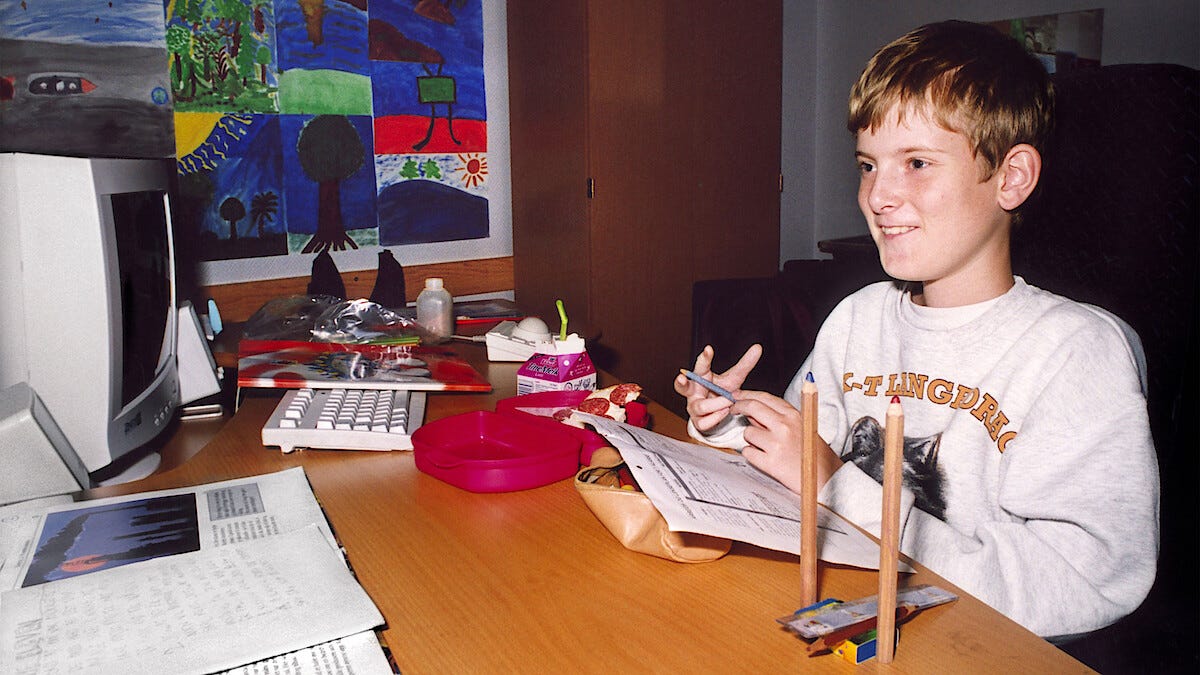

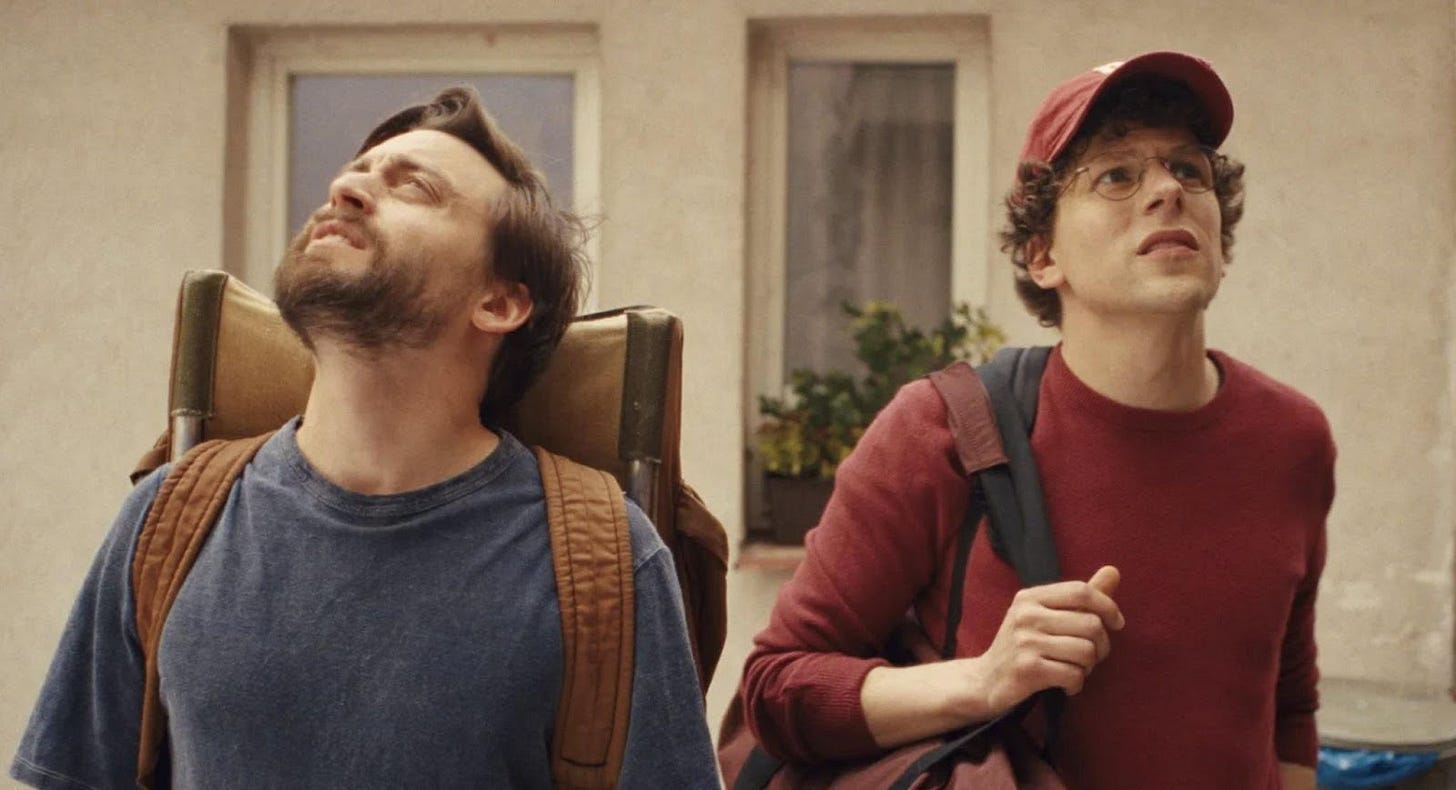
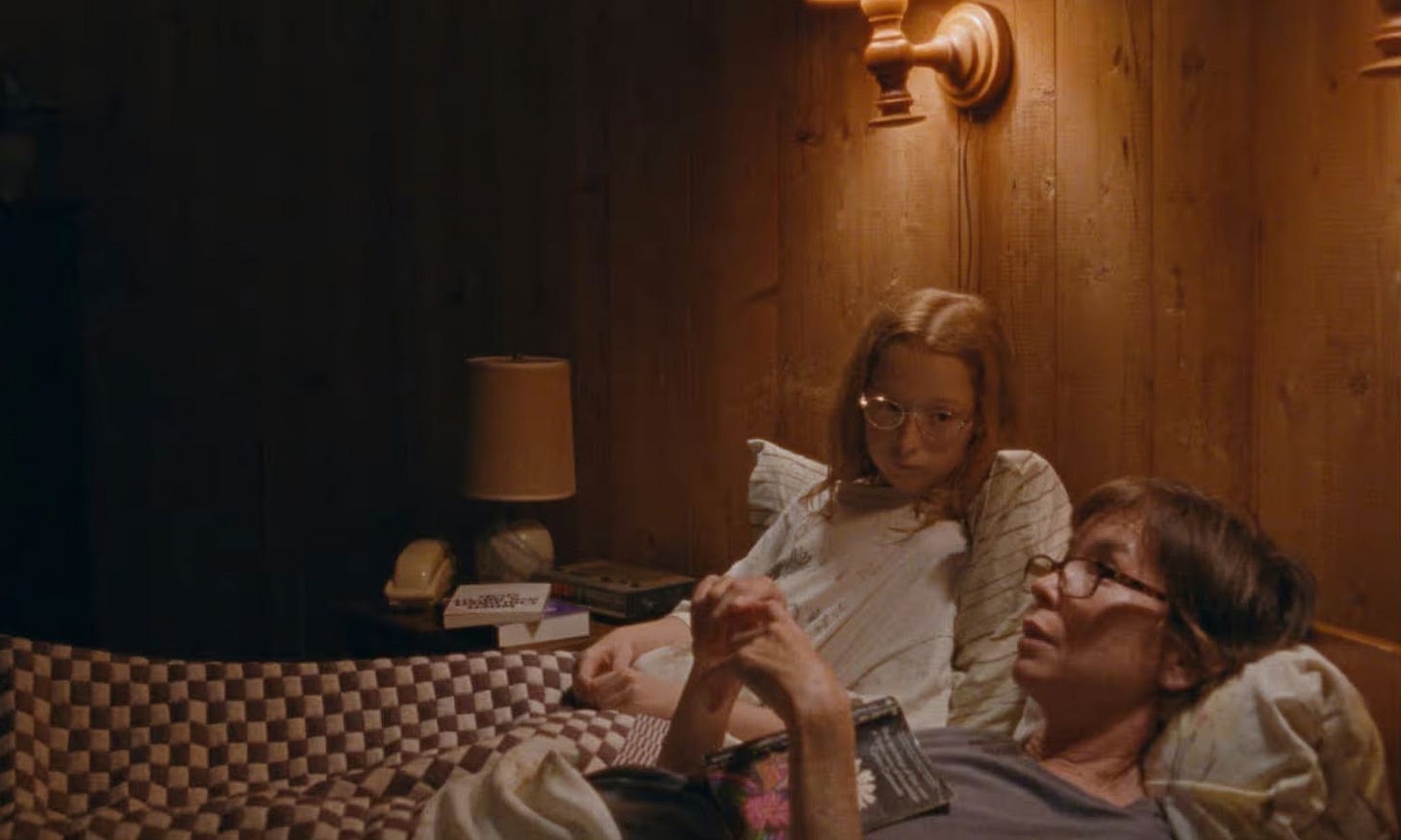




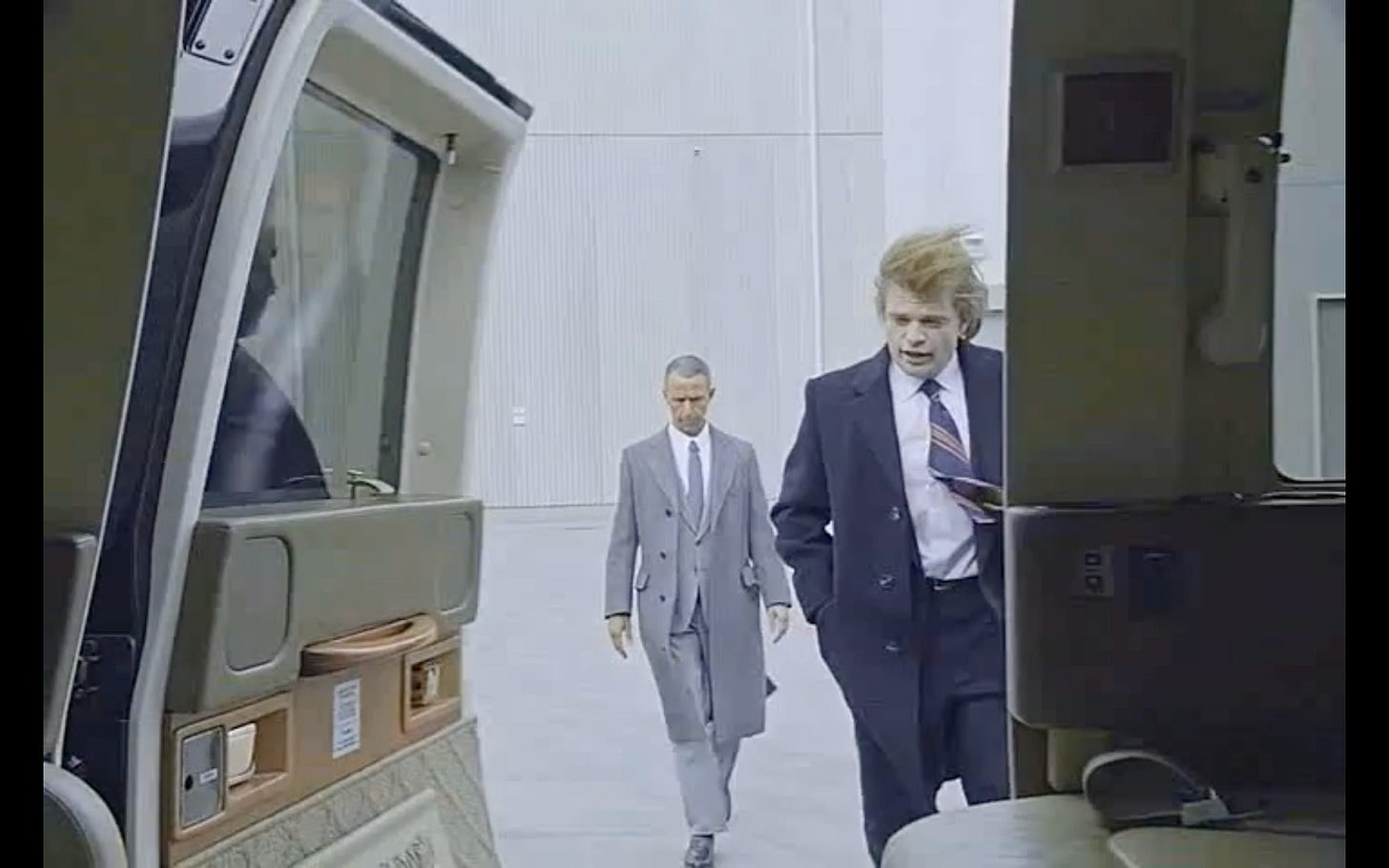
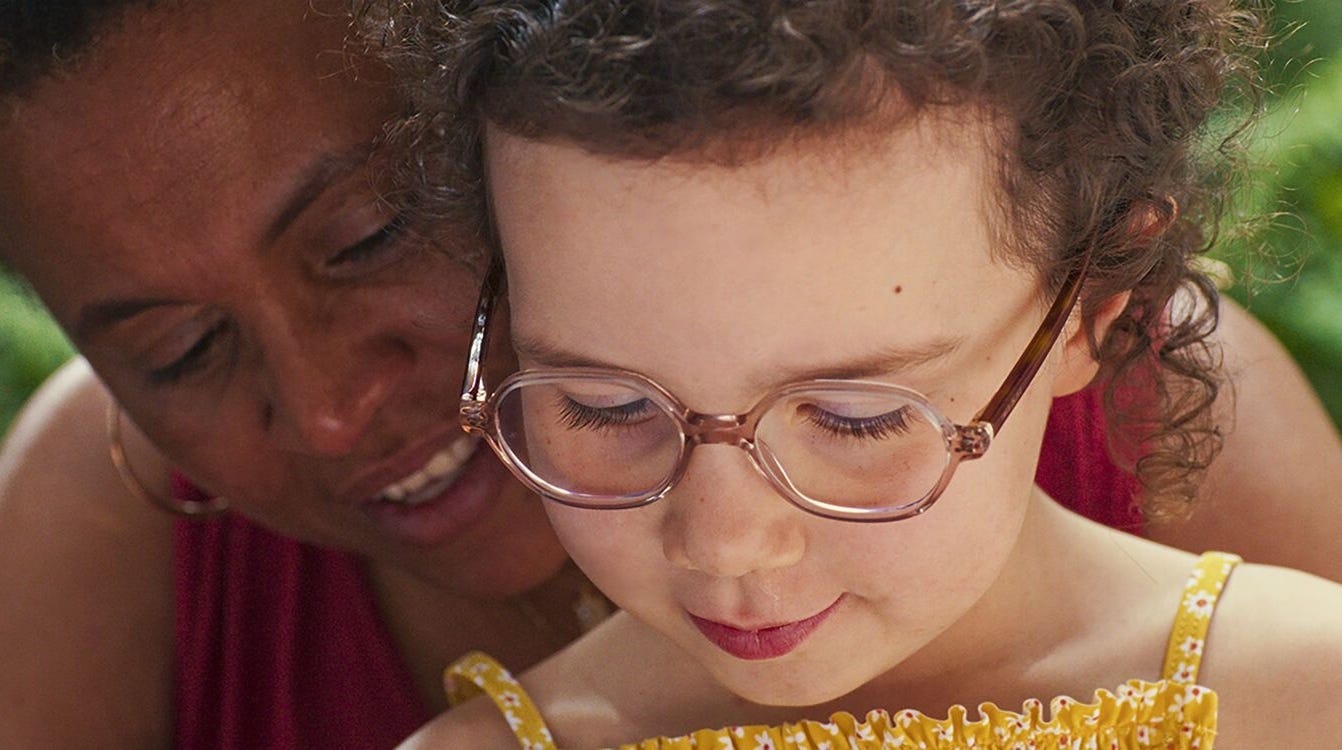

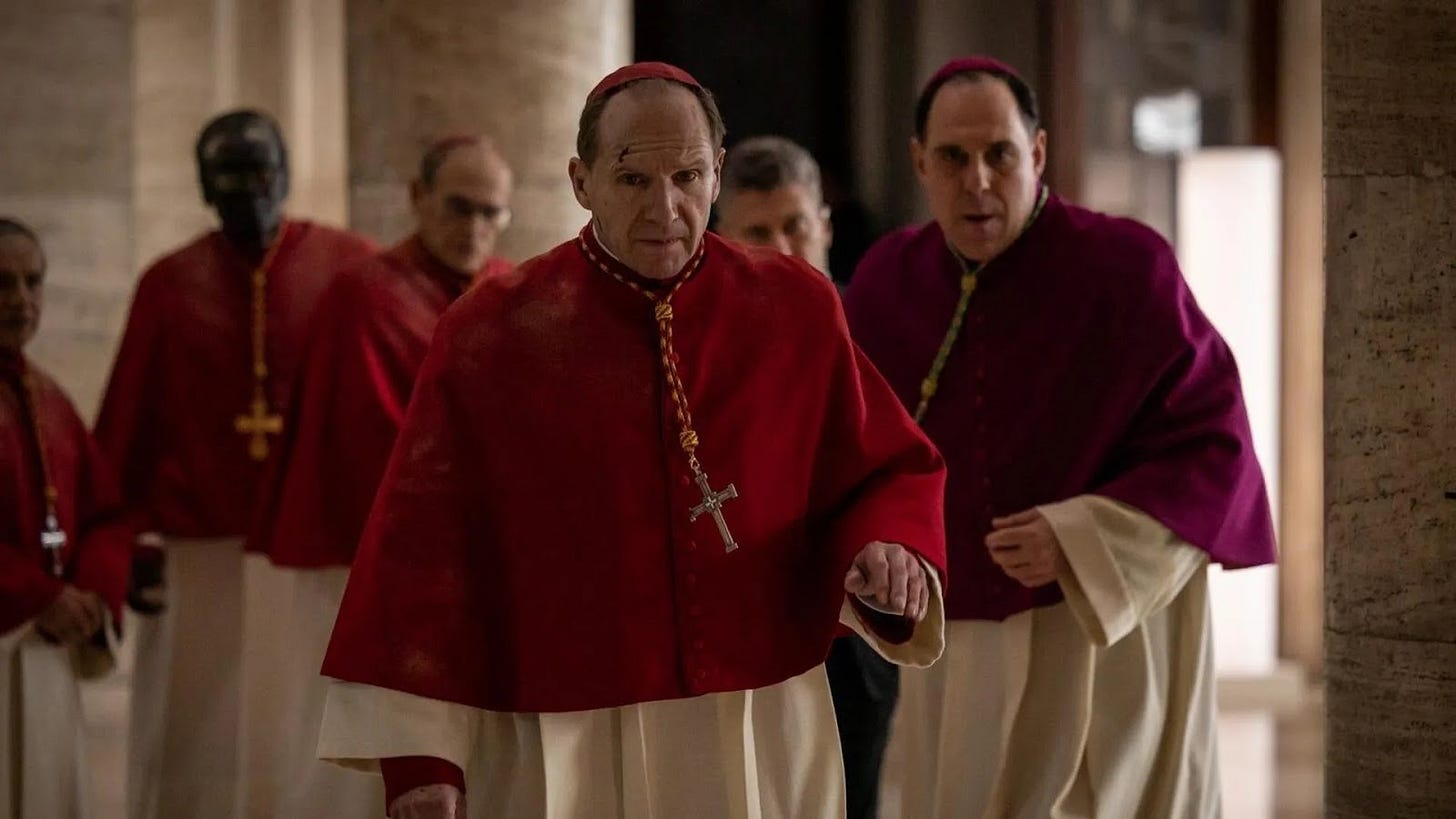
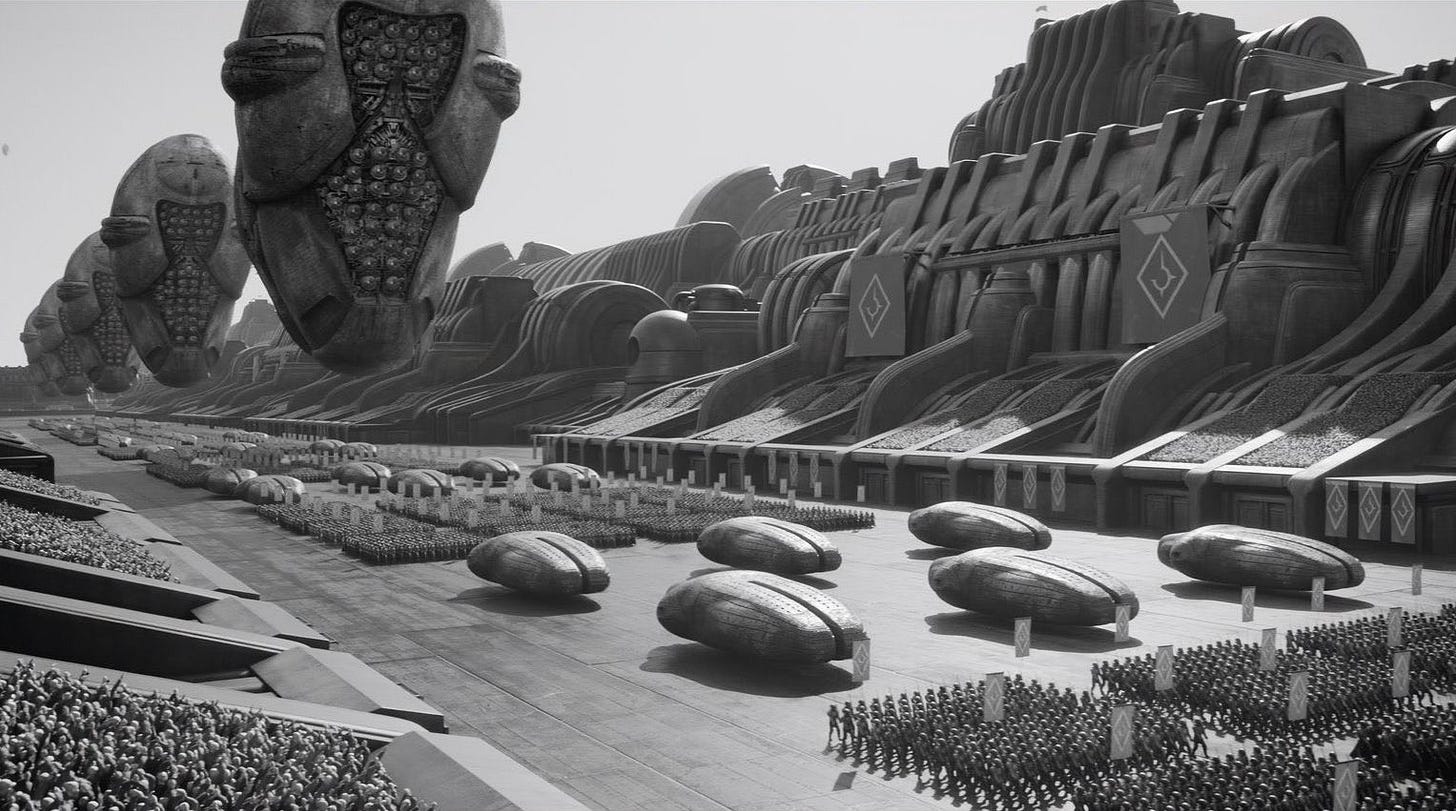
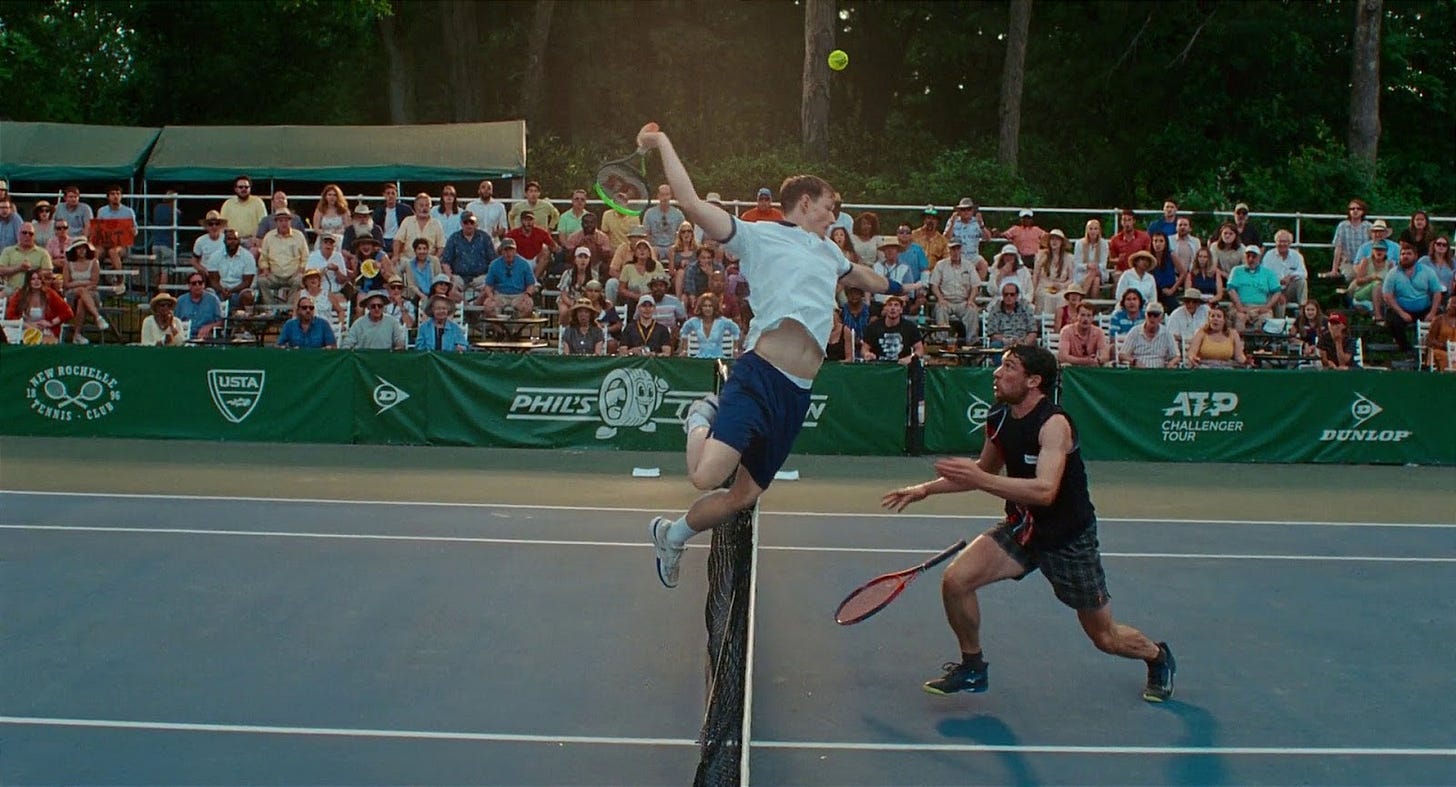
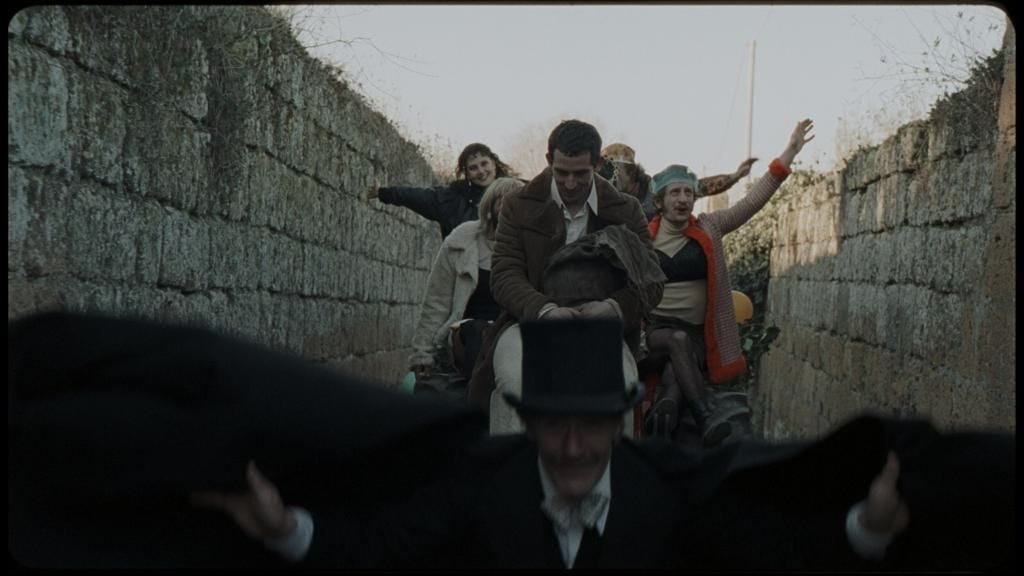
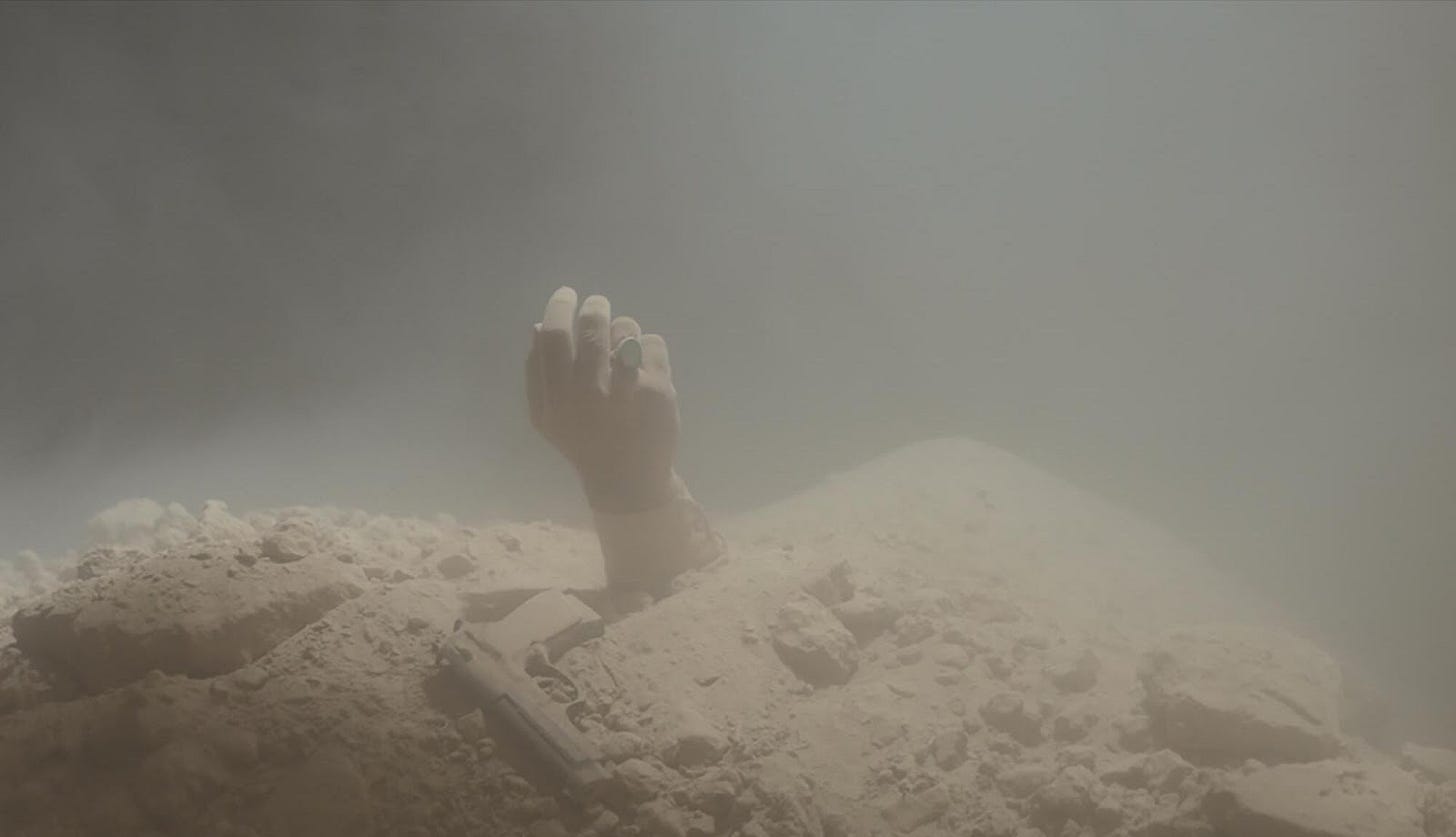



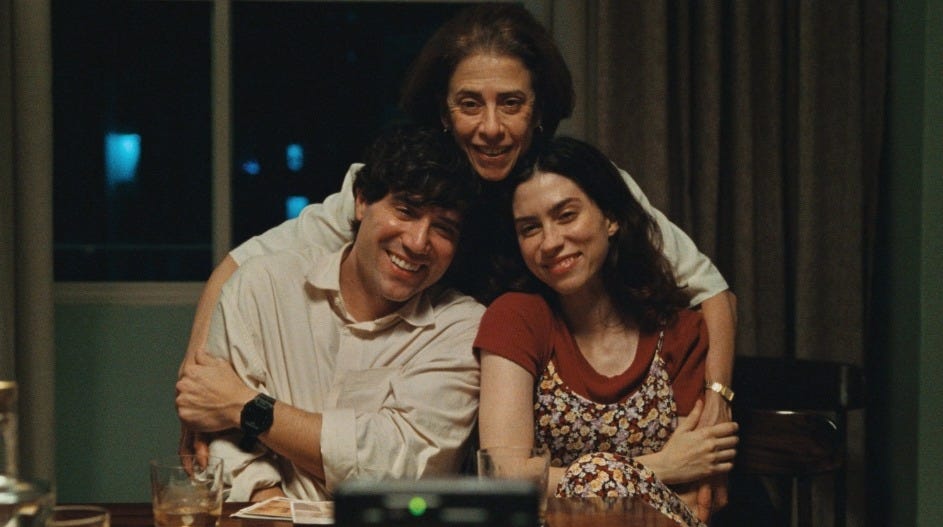
Absolutely excellent list